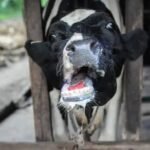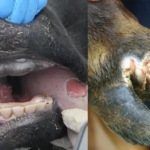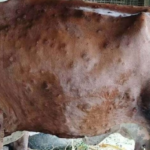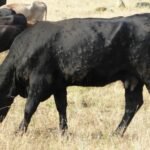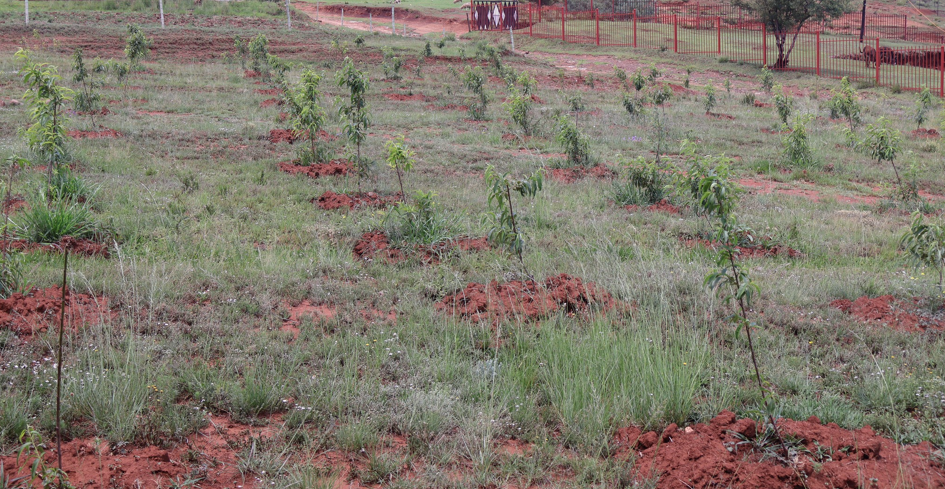Lesotho’s agricultural sector is undergoing a significant transformation as farmers adopt agroecology skills and land restoration techniques to combat environmental degradation and enhance productivity.
With years of overgrazing, soil erosion, and climate change negatively impacting the country’s food production, initiatives like the Regeneration of Landscapes and Livelihoods (ROLL) project are playing a crucial role in empowering communities and ensuring sustainable farming practices.
Funded by the International Fund for Agricultural Development (IFAD), the OPEC Fund for International Development (OFID), and the Government of Lesotho, ROLL is an ambitious eight-year initiative that aims to regenerate degraded landscapes while simultaneously improving the livelihoods of rural farmers.
The project is currently being implemented in five districts—Thaba-Tseka, Leribe, Berea, Qacha’s Nek, and Botha-Bothe—where it is expected to directly benefit approximately 100,000 people and indirectly support up to 340,000 rural Basotho.
One of the most pressing challenges for Basotho farmers has been soil erosion and land degradation, which have drastically reduced agricultural productivity. The ROLL project is tackling this issue head-on by promoting agroecology-based farming techniques that restore soil health, increase biodiversity, and enhance climate resilience.
“The project ensures rural communities in Lesotho adopt transformational practices for regenerated landscapes and sustainable livelihoods,” states the Report on the use of the Tool for Agroecology Performance Evaluation (TAPE) in Lesotho in the context of the Restoration of Landscape and Livelihoods Project (ROLL).
Through ROLL, farmers are learning about crop rotation, intercropping, organic composting, and water conservation techniques, all of which reduce the need for chemical inputs while improving yields.
The project also supports sustainable livestock management, encouraging farmers to replace low-quality breeds with improved ones to reduce overgrazing and enhance wool and mohair quality.
According to the Tool for Agroecology Performance Evaluation (TAPE), which was implemented in Lesotho as part of ROLL, many local farms are still in the early stages of agroecological transition.
The study found that less than 5% of farms could be considered fully agroecological while most farms scored below 50% on the agroecological transition scale.
The study further indicated that diversified farms (those integrating crops, livestock, and horticulture) performed significantly better than monoculture farms.
“The use of TAPE in these territories provided important data and key information about the overall sustainability of farms measured by different indicators of performance,” the report notes.
Despite these challenges, the report highlighted that farms adopting agroecology techniques saw higher productivity, greater resilience, and improved food security, underscoring the importance of expanding these practices nationwide.
Tackling Climate Change and Food Security
Lesotho is particularly vulnerable to climate change, with erratic rainfall, prolonged droughts, and soil erosion threatening agricultural production and according to the study, the ROLL project is addressing these issues by restoring rangelands, implementing water conservation techniques, and promoting sustainable grazing management.
“Environmental resilience and capacity to adapt to climate change is very low, especially due to the lack of diversification and soil erosion in mountain landscapes,” the report states.
To strengthen climate resilience, ROLL is working with community coalitions, grazing associations, and women’s savings groups to promote knowledge-sharing and ensure that farming techniques are tailored to Lesotho’s specific environmental conditions.
The Role of Women and Youth in Sustainable Agriculture
One of ROLL’s key focus areas is ensuring greater participation of women and youth in agriculture and the study found that while men still dominate livestock farming, women play a significant role in crop production, food preservation, and community-led agricultural initiatives.
The project is also encouraging youth involvement by supporting education and training programs in agroecology.
“By promoting sustainable agribusiness opportunities, ROLL aims to curb rural-to-urban migration and create economic prospects in farming communities.”
With just a few years left before the project concludes in 2028, stakeholders are focused on ensuring the long-term success of agroecology and land restoration initiatives.
The project is advocating for policy reforms to support agroecological transitions, additional funding to expand restoration projects and building stronger partnerships between farmers, researchers, and policymakers.

